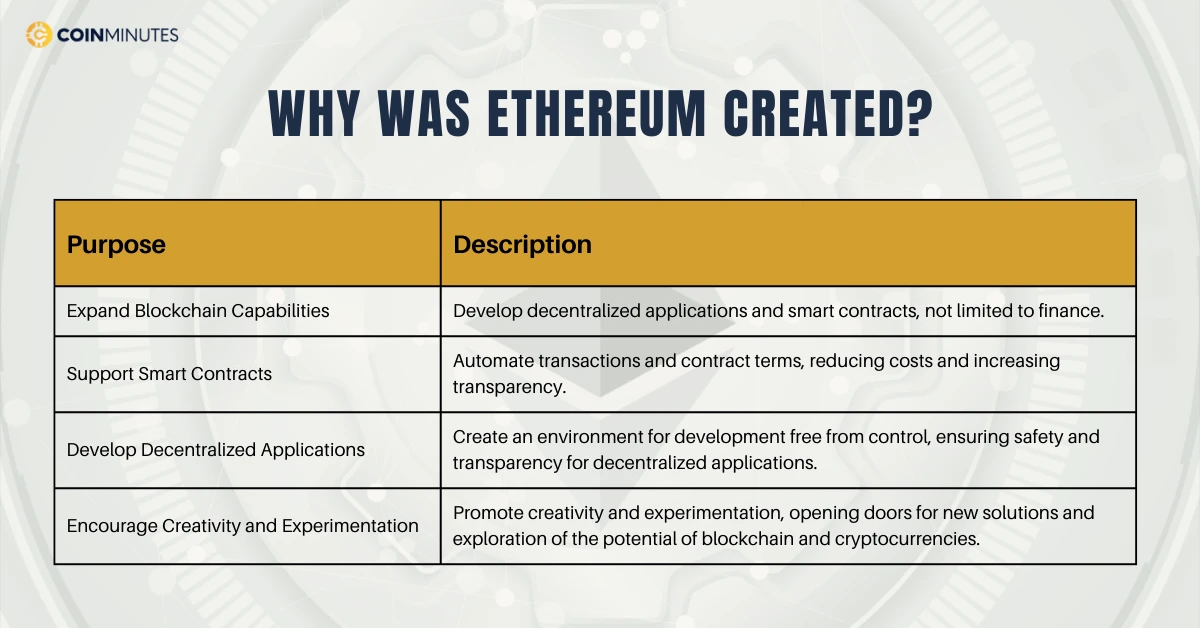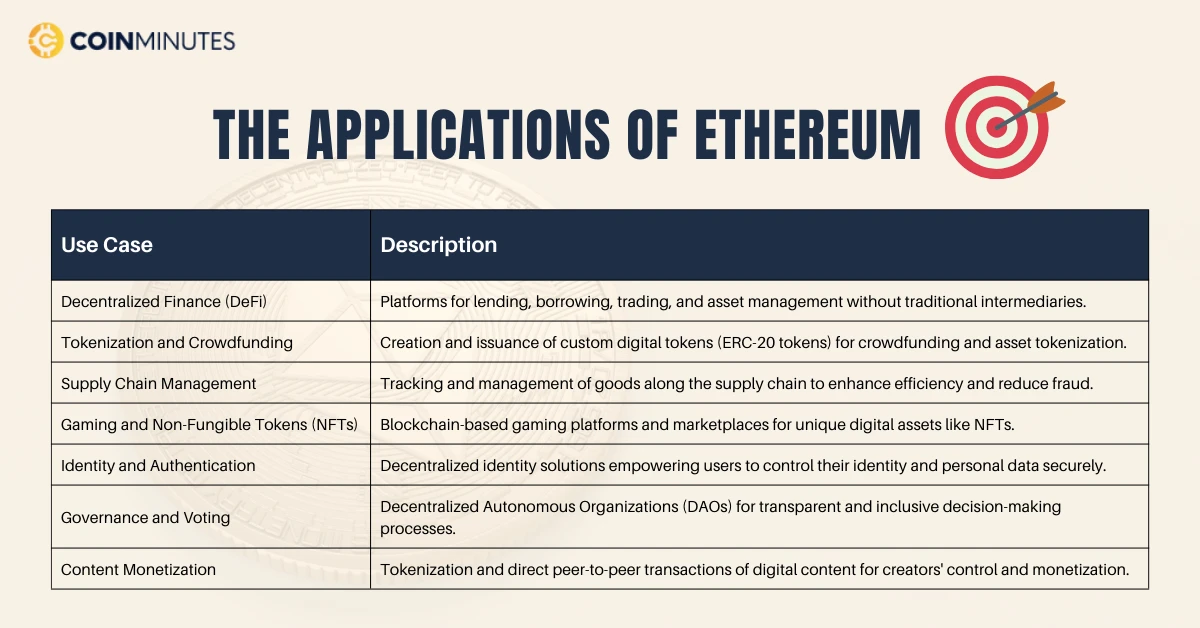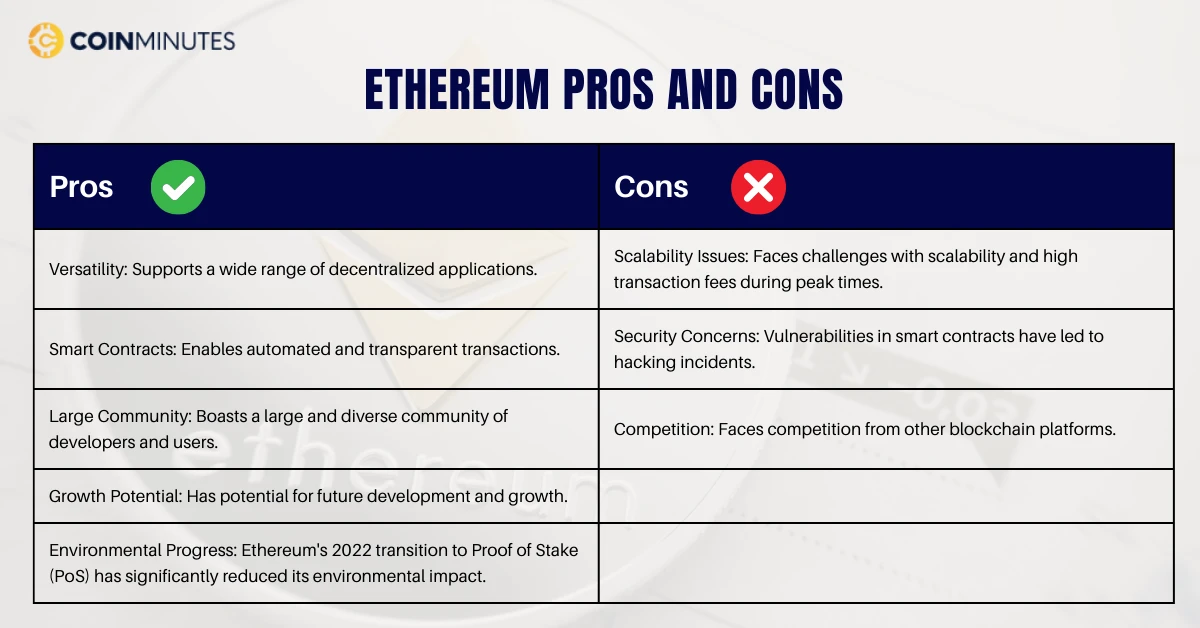Ethereum is the second largest cryptocurrency after Bitcoin. So what is Ethereum and why is it so popular? Let’s answer these questions in our following article.
Key Takeaways
|
What Is Ethereum?
Ethereum (ETH) is an open-source and decentralized blockchain platform that enables the development of decentralized applications (dApps) and smart contracts. Unlike Bitcoin, which is primarily designed to serve as a digital currency, Ethereum provides a more powerful platform for developers to build applications capable of executing complex transactions and automation.
Ethereum is the second most popular cryptocurrency after Bitcoin. Founded by Vitalik Buterin and Gavin Wood in 2015. Ethereum was created to expand the usability of blockchain technology. Specifically, Vitalik Buterin, the founder of Ethereum, envisioned blockchain’s potential beyond simple financial transactions. He imagined a space where developers could craft various decentralized applications, from gaming to economic systems. This vision aimed to foster independence and transparency in online activities, eliminating the need for intermediaries, and leading to the creation of Ethereum.

How Does Ethereum Work?
Ethereum operates as a decentralized network based on blockchain technology. Each transaction is broadcast across the network and confirmed by nodes before being added to the blockchain. What sets Ethereum apart is its support for smart contracts, allowing the deployment of applications capable of autonomously executing terms and conditions transparently on the network’s platform. Now, let’s delve into the components of Ethereum.
- Smart Contracts: These are like digital agreements written in code. They automatically execute actions when certain conditions are met. For example, if you rent a house using a smart contract, it will automatically release the payment to the landlord on the agreed-upon date.
- Ethereum Virtual Machine (EVM): Think of this as a computer that runs all the smart contracts on the Ethereum network. It ensures that smart contracts behave the same way no matter where they’re executed.
- Consensus Mechanism: In the past, Ethereum used a method called Proof of Work (PoW), where miners compete to solve puzzles and add new blocks to the blockchain. Now, Ethereum moved to Proof of Stake (PoS), where validators are chosen to create new blocks based on the amount of cryptocurrency they hold. It’s like a voting system where those with more “votes” decide what goes into the blockchain.
What Is Ethereum Used For?
Ethereum has various applications across various industries due to its ability to support smart contracts and decentralized applications (DApps). It is the foundation for decentralized finance (DeFi), enables tokenization and crowdfunding, improves supply chain management, fuels gaming, and NFT markets, facilitates decentralized identity solutions and governance models, and empowers content monetization. These multifaceted applications illustrate Ethereum’s transformative potential across sectors. Explore the detailed breakdown of Ethereum’s applications:

Ethereum Pros and Cons
What are the primary pros and cons of Ethereum, and how do they impact its standing within the blockchain ecosystem? Let’s explore them together.
Pros of Ethereum:
- Versatility: Ethereum supports a wide array of decentralized applications (DApps), spanning from financial to gaming and supply chain management, allowing for extensive development and expansion across various sectors.
- Smart Contracts: Ethereum enables the creation and execution of transparent and automated transactions through smart contracts, enhancing transparency and minimizing risks in transactions.
- Large Community: Ethereum boasts a vast, diverse, and dynamic community of developers and users, crucial for driving the platform’s development and continuous growth.
- Growth Potential: Ethereum still holds significant potential for future development and expansion. Ongoing community interest and the continual development of new projects play a vital role in building the platform’s future.
- Environmental Progress: Since transitioning to Proof of Stake (PoS) in 2022, Ethereum has made significant strides in reducing its environmental impact. Unlike the energy-intensive Proof of Work (PoW) mechanism, PoS solely focuses on validation tasks, resulting in a more sustainable and eco-friendly operation.
Cons of Ethereum:
- Scalability Issues: Ethereum encounters challenges with scalability, particularly evident during high transaction volumes, leading to slower processing times and elevated transaction fees.
- Security Concerns: Security vulnerabilities and flaws in smart contracts have resulted in hacking incidents and asset losses in the past, raising concerns about the platform’s security.
- Competition: Ethereum faces competition from other blockchain platforms, which poses a threat to its dominance and requires constant innovation to maintain its market position.

Ethereum vs Bitcoin
Bitcoin and Ethereum, the titans of the cryptocurrency world, diverge in their core objectives and technological architectures. While Bitcoin is revered as a digital currency and a hedge against inflation, Ethereum emerges as a dynamic platform fostering decentralized applications and smart contracts. Here are a few points of differentiation between Bitcoin and Ethereum:
- Purpose: Bitcoin primarily serves as a decentralized digital currency and store of value, while Ethereum aims to provide a platform for decentralized applications (DApps) and smart contracts.
- Consensus Mechanism: Bitcoin currently operates on a Proof of Work (PoW) consensus mechanism, while Ethereum transitioned to a Proof of Stake (PoS) consensus mechanism in 2022, which has contributed to improving scalability and energy efficiency.
- Transaction Speed and Fees: Ethereum generally offers faster transaction speeds and lower fees compared to Bitcoin due to differences in its blockchain architectures and consensus mechanisms.
The Bottom Line
In summary, Ethereum is more than just a cryptocurrency; it’s a pioneer in blockchain technology. It’s smart contracts and decentralized apps open doors to endless possibilities. Although Ethereum faces challenges, its vibrant community ensures it stays at the forefront of innovation.








